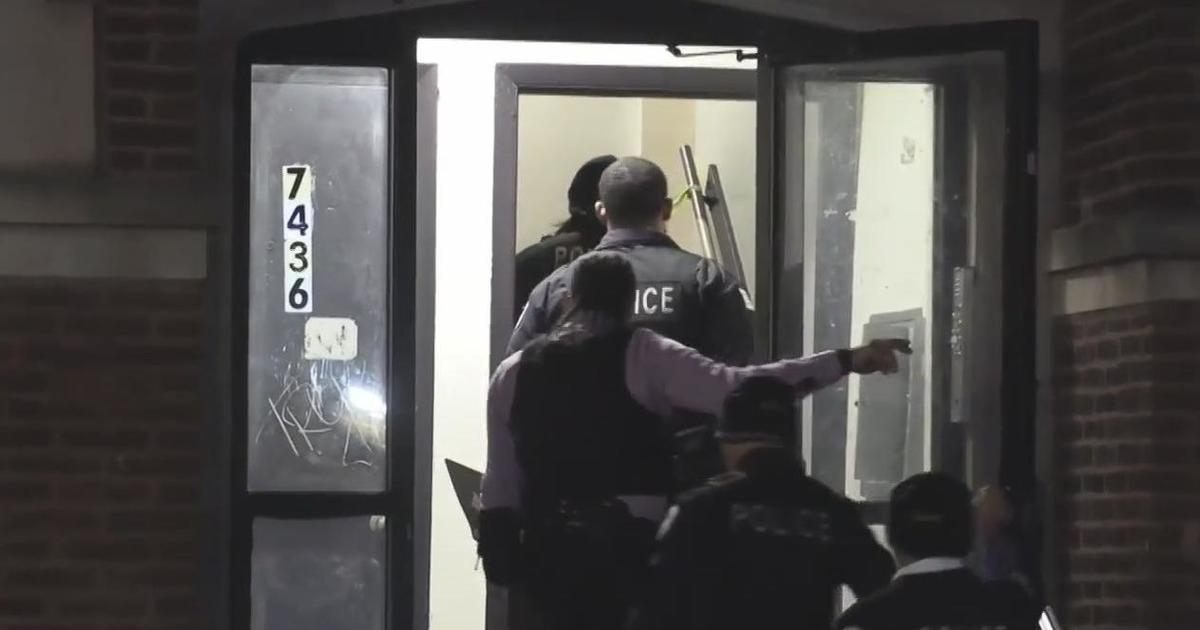Autoworkers' strike against Ford leads to layoffs at suburban Chicago stamping plant
CHICAGO (CBS) -- CBS 2 News has confirmed the autoworkers' strike against Ford has led to hundreds of layoffs at the automaker's stamping plant in south suburban Chicago Heights.
The layoffs took effect Saturday, Sept. 30.
On Friday, approximately 4,600 Ford workers at the Chicago Assembly Plant at 126th Street and Torrence Avenue on the Southeast Side joined the United Auto Workers on strike against Detroit's Big Three carmakers, expanding a strike that has already shuttered assembly plants, parts distribution centers and other facilities across more than 20 states.
UAW President Shawn Fain said the Ford plant in Chicago, and the General Motors Lansing Delta Township assembly plant in Michigan were joining the strike on Friday, adding about 7,000 more workers to the strike against Ford, GM, and Stellantis – the parent company of Chrysler, Dodge, Jeep and Ram, along with a number of foreign brands.
The Ford factory in Chicago makes Ford Explorers and Explorer Police Interceptors, as well as the Lincoln Aviator SUV. The GM factory in Lansing makes the Chevy Traverse and Buick Enclave and other SUVs. A metal parts stamping plant in Lansing will remain open while the assembly plant is on strike.
Ford released a statement acknowledging the layoffs at the Chicago Heights facility – as well as an engine plant in Lima, Ohio:
"Our production system is highly interconnected, which means the UAW's targeted strike strategy has knock-on effects for facilities that are not directly targeted for a work stoppage. In this case, the strike at Chicago Assembly Plant has directly impacted some operations at Chicago Stamping Plant and Lima Engine Plant. Approximately 330 employees have been asked not to report to work, with layoffs taking effect beginning Sept. 30 at Chicago Stamping Plant and Oct. 2 at Lima Engine Plant.
"These are not lock outs. These layoffs are a consequence of the strike at Chicago Assembly Plant, because these two facilities must reduce production of parts that would normally be shipped to Chicago Assembly Plant.
"These 330 layoffs are in addition to 600 laid off from Michigan Assembly Plant beginning Sept. 15, bringing Ford's total to 930 employees impacted by strike-related layoffs."
The Chicago and Lansing plants employ more than 7,000 union auto workers combined, according to Fain, bringing the total number of auto workers on strike to 25,000, or 17% of the UAW's roughly 146,000 members.
"We're out here to try to get a decent contract because we work hard," Craig Taylor, a Ford worker at the Chicago plant, said Friday.
Daniel Morales, another Chicago Ford worker, said Friday, "We are out here fighting for a better tomorrow. Fighting for a better chance to finally be able to live within these hard times. The economy has gone up but our pay hasn't."
The UAW launched its "stand-up strike" — a rhetorical nod to the "sit-down" strike by GM workers in Flint, Michigan, in the 1930s — on Sept. 15 when nearly 13,000 autoworkers halted work at Big Three assembly plants Michigan, Missouri and Ohio. A week later, another 5,600 workers at 38 GM and Stellantis-owned parts distribution centers in 20 states walked off the job, including two sites in Illinois — a GM facility in Bolingbrook and a Stellantis facility in Naperville.
The UAW's demands include a 36% pay increase across a four-year contract, annual cost-of-living adjustments, pension benefits for all employees, greater job security, restrictions on the use of temporary workers and a four-day work week. Along with a wage hike, the union also wants the automakers to eliminate a two-tiered wage system adopted at the companies after the 2008 financial crisis.
For their part, the automakers say they have made reasonable counteroffers, while arguing that the UAW's wage and other demands would make it hard to compete with other car manufacturers.
Automakers have long said that they're willing to give raises to workers, but fear that too rich of a contract will drive up the prices of their vehicles, making them higher than those made at nonunion U.S. plants run by foreign automakers, largely in the south. The union counters that labor costs are only 4% to 5% of the cost of a vehicle, and the companies are making billions in profits and can afford big raises.
Union leaders counter that the Big Three reaped hefty profits as car prices jumped during the pandemic, while workers failed to enjoy the same benefits.



